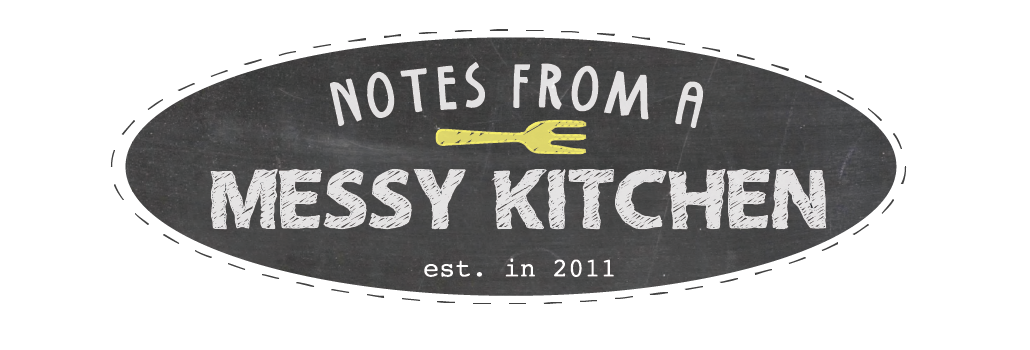Five Thoughts About Friendship

I’ve been thinking a lot about friendship lately – I’m not sure exactly why. I do know I’ve been feeling exceptionally lucky. I very regularly look around and wonder to myself, “What in the world did I do to deserve this?”
I’ve also felt inspired lately to use this space to write and share some more personal, honest thoughts. Not that the tofu recipe I’m going to share with you very soon isn’t honest, but the posts that go beyond recipes have always felt more interesting. Hopefully you agree!
So with that, here are a few thoughts on friendship:
1) Nothing matters more than showing up.
Showing up is *the* most important part of being a good friend. This is something I constantly try to remind myself and will probably continue to work my whole life to get better at. Showing up is physical – it’s being there when it’s important, even if it’s inconvenient, even when you have another option that would have been easier or more fun. But it’s more than that too. It’s checking in when someone is going through a hard time. It’s remembering what’s going on in peoples’ lives and asking for updates. It’s remembering birthdays and anniversaries. It’s finding ways to make challenges easier and helping celebrate success. It’s saying “thank you” and “I’m sorry” and “are you okay?” It’s being the proactive friend, at least some of time. I notice the people in my life who do these things, and while I definitely don’t always succeed – I try to remember how they make me feel and model myself after them.
2) I have ridiculously high expectations, and I’m not sorry.
For a long time, my friends joked about my infamous “Three Strike Rule.” Essentially: flake out on me three times and we’re done. It was something we laughed about, but once I actually implemented it. And on someone whose company I really enjoyed none the less. She was fun and funny, and we probably could have become really good friends. But for every one time we’d hang out, there would be two times something would come up at the very last minute. I finally had to just be honest and say that between work and grad school, I didn’t have time for people who couldn’t stick to their commitments.
This might sound harsh, and don’t get me wrong – I understand that sometimes things come up. That’s what the first two strikes are for! Kidding, it’s obviously not that black and white. But ultimately, I need to be able to count on people. I deeply value reliability, and like to think I hold myself to that same high standard. Sometimes I edge on non-committal, but if I say I’m going to do something I’m going to do it.
And perhaps the even bigger thing: We all live *very* busy lives. I don’t think there’s a single one of my friends that I see as much as I’d like to. When someone cancels at the last minute it’s not just breaking a commitment to me, it’s a missed opportunity for me to show up for someone else I care about.
Anthropologist and psychologist Robin Dunbar says there is a cognitive limit to the number of people with whom we can maintain stable social relationships. Dunbar’s number is 148 (casually rounded to 150), which he has explained informally as “the number of people you would not feel embarrassed about joining uninvited for a drink if you happened to bump into them in a bar.” He says that those 150 are made up of 5 intimate friends, 15 good friends (including the 5 intimate friends), 50 friends (including the 5 intimate friends and 15 good friends) and 150 acquaintances (all-encompassing). The reality is, we have limited time and limited cognitive and emotional capacity. Nothing is wrong with having high standards for the people we grant it to. At the end of the day, I firmly believe in prioritizing the people who prioritize you!
3) You only stop making friends if you stop having interests.
I remember reading a New York Times piece years ago that talked about why it’s harder to make friends the older you get. At the time I think I took it to heart. To be honest, until fairly recently I worried that forming new, intimate friendships might soon be a thing of the past. I was incredibly fortunate that my first real job out of college was in an office that fostered unusually tight social connections. I think that the Hill is inherently a good place to make friends – it’s full of young people who work long hours that often extend into happy hours and softball games. But our office was more than that. We regularly hung out every weekend. It produced marriages and lifelong friendships. In subsequent jobs I met people whose company I very much enjoyed, but it rarely extended outside the workplace. As some of the friends I met through college and the Hill moved away (some across the country, some to the suburbs – in reality, it’s not been much different) I wondered – if not in school and not at work, where?
Truthfully, I probably could have looked around and realized much sooner that this was a baseless fear. One of the things I’ve always loved about D.C. is how diversely sourced my friend groups are. Heck, I met one of my very dearest friends while serving on jury duty, and through her a wonderful group of incredibly interesting, passionate friends. Our gym has brought wonderful people into our lives – who have in turn brought wonderful people into our lives. And this year, through exploits like DragonCon and Ragnar Relay, we’ve met incredible people who share our sense of adventure.
The New York Times piece lists three conditions sociologists have deemed crucial to making close friends: proximity; repeated, unplanned interactions; and a setting that encourages people to let their guard down. Our neighborhood ensures the former two – I very regularly bump into people at the grocery store, at the dog park, or just walking around – and I don’t know what encourages you to let your guard down more than a three day costume party/rave or living in a van with someone for 36 hours. I think it’s having interests and an open mind – not age – that makes it possible to make new friends. We’re willing to try new things, and when we do we tend to go all in. And we usually come out with really cool new friends.
4) Your partner or spouse doesn’t have to be (and shouldn’t be!) your everything. We all need a tribe!
I recently read an article in New York Magazine in which the author talks about having a friendship affair. In it, she laments that adult female friendships are no longer supported or sanctioned the way they were a generation ago, and suggests that there is a societal expectation that a partner or spouse also be your best friend. “Why shouldn’t we get certain types of intimacy from husbands or romantic partners and certain types from friends, the way women of my mother’s generation seemed to?” she asks. “The idea that a husband should not just be a husband but a best friend, an everything, a partner’s entire emotional world, is a recent one. But is this new emotional transaction, this replacing of female intimates with a husband, really an even trade?”
I totally reject that norm, if it is one. My husband is 100% my favorite human, but as I’ve said before, I’ve never believed that one person can or should be your everything. I shared the article, and it sparked a fair amount of conversation among my friends. As one friend put it, “Neglecting to cultivate a rich and fulfilling life outside of your relationship as well as within it will just lead to neither of you having anything interesting or new to bring to the relationship.” And she’s spot on. Research has shown that having supportive friendships is associated with happier marriages.
I think another summed it up well when he said, “One of the traits of being wired as pack animals is that we have different voids that are filled by different people. Some friends we have because it’s a reminder of another time, others we keep around because they’re excellent listeners, while some are just fun. If you list out all of the reasons we like each of our friends it’s easy to realize that one person could never be all of those things—much less a romantic partner on top of it all.”
5) Friendship Crushes are 100% normal.
Another piece of the article resonated with me, and seemed to resonate with many of my friends who read the article: The Friendship Crush. Intense platonic relationships that, as one friend put it, can be as thrilling and intimate as any romantic relationship. I’ve always been drawn to intense friendships. In first grade, my best friend and I used to find scraps of string around the school yard to tie ourselves together with so our parents would have no choice but to let us have a sleepover. Since then, I can think of at least eight friendships that anyone who knew us at the time would look back on and surely describe us as inseparable. People whom the question would become “what are we doing tonight?” rather than “are you free this weekend?” Since Courtney and I have been married, we’ve even had a few couple friendships I’d describe very similarly. Most of these friendships were relatively short and intense, lasting in that phase at least, no more than a year or two. And strangely most of them I can’t actually remember exactly when or why they ended or changed. Most were more of a natural fade than any sort of falling out. Some I felt sentimental about, while others I recognized as a unique product of time and place.
These friendship crushes are normal and harmless. They can be exciting, and in the ideal case these folks may even settle into long term friendships.
5a) But don’t ever forget who has been there for you and always will be!
I have an addendum to #5! The author describes these friendships as “occasionally undermining, marriage-threatening, slightly pathological.” While I disagree with this assessment, I admit that it’s often easy to get caught up in a new, exciting, intense friendship. There’s something about the ease and consistency of the “so what are we doing this weekend?” assumption that I love! But – and too many times in my life I’ve failed at this – never let a Friendship Crush supersede the people who have consistently Shown Up for you (see #1!) – prioritize those people, because they’re ultimately the people who will be there for you longer and in better ways!
